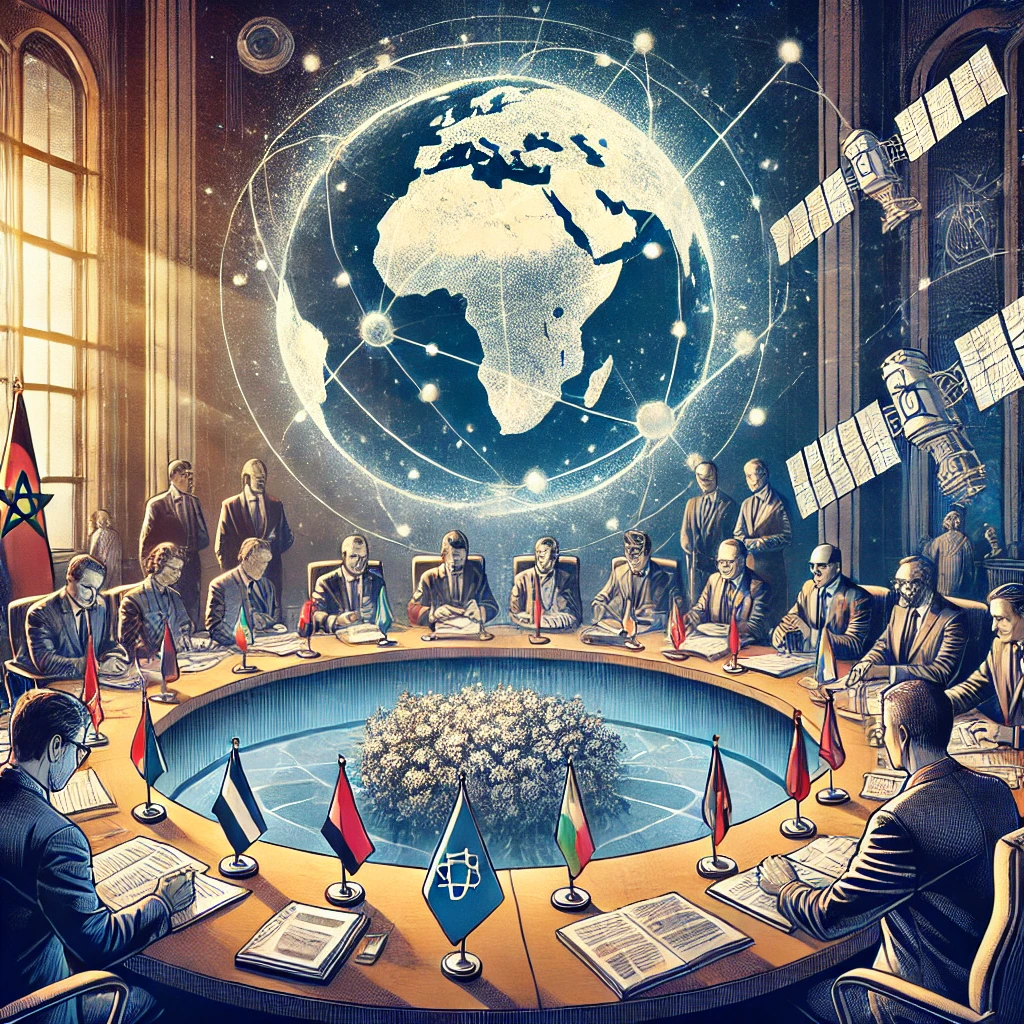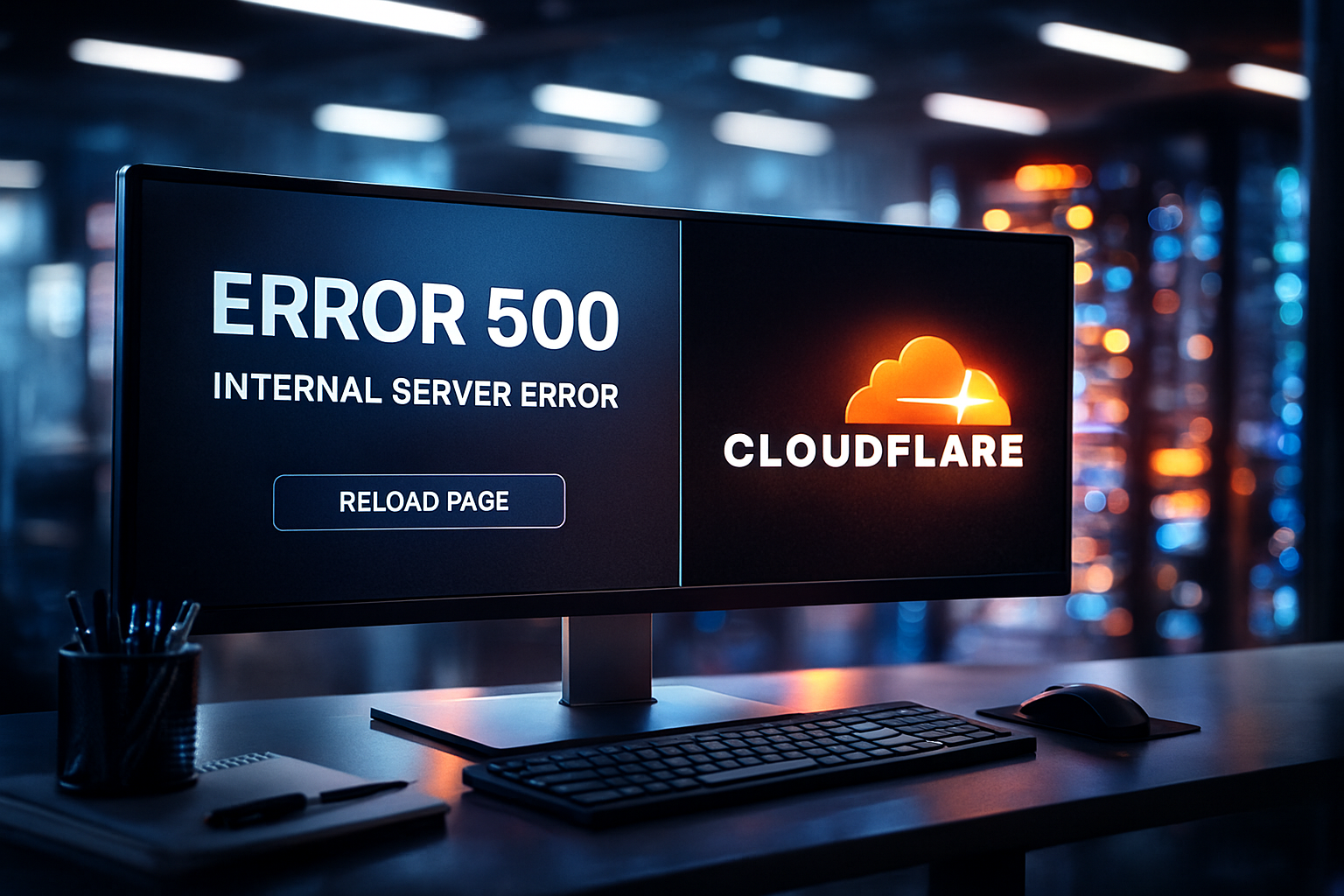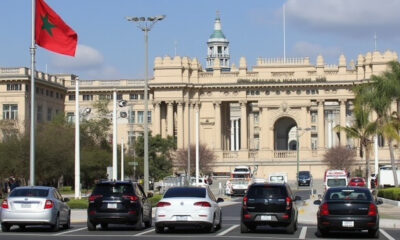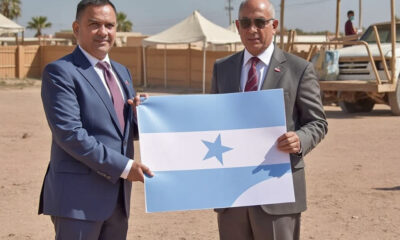International
UNOOSA Hosts Key Space Law Advisory Mission in Morocco, Enhancing National Space Governance

On October 1, 2024, Morocco hosted a pivotal event in space law governance, with the United Nations Office for Outer Space Affairs (UNOOSA) conducting a Space Law Technical Advisory Mission in the country. This significant mission focused on helping Morocco establish and strengthen its national space law framework, a crucial step in aligning the country’s space activities with international standards and promoting the responsible use of outer space. The one-day event was part of the broader Space Law Project, an initiative aimed at helping countries develop comprehensive space laws and regulations to govern their expanding activities in space.
Enhancing Space Governance and National Frameworks
The advisory mission was structured to provide Moroccan government officials and industry stakeholders with a deep understanding of the importance of developing a robust legal framework for space activities. With space increasingly seen as a domain of both opportunity and responsibility, Morocco’s initiative to engage with international space law reflects its ambition to become a more prominent player in the evolving space economy.
Discussions during the mission addressed a range of critical issues, including authorization and licensing procedures, supervision and monitoring of space activities, and space debris mitigation strategies. These elements are vital for ensuring that space activities are conducted safely, sustainably, and in accordance with international obligations.
Legal experts from various countries—including France, Italy, the Netherlands, and Luxembourg—participated in the discussions, sharing insights on how national space laws can be developed to meet the challenges of an increasingly congested and contested space environment. This collaborative approach helped provide a multi-faceted perspective on the necessity of a clear regulatory framework that can oversee activities such as satellite launches, space research, and future commercial ventures.
Key Discussions and Focus Areas
The Space Law Advisory Mission covered several essential topics that are foundational to any national space governance framework:
- Authorization and Licensing: One of the primary subjects of discussion was the process for authorizing space activities, including launch licenses and operational permits for private and public entities. Establishing a transparent and efficient licensing process is crucial to attract investment and ensure compliance with international standards. Legal experts highlighted best practices from Europe and beyond, providing Morocco with a roadmap to set up a well-functioning regulatory environment that can support the burgeoning space sector.
- Supervision and Compliance: The event also focused on the need for continuous supervision and compliance monitoring of space activities. This includes ensuring that all space activities undertaken under Moroccan jurisdiction adhere to international treaties, particularly the Outer Space Treaty of 1967, which is the foundation of international space law. Effective supervision minimizes the risk of liabilities and ensures that the country remains in good standing within the international community.
- Space Debris Mitigation: As space becomes more crowded, space debris is becoming an increasing concern. The advisory mission underscored the importance of adopting proactive measures for space debris mitigation. This includes developing policies that require satellite operators to de-orbit defunct satellites and minimize the risk of collisions, which could generate debris and threaten other space assets. Proper debris management is also critical for maintaining the sustainability of the space environment, ensuring that space remains usable for future generations.
- State Responsibility and Liability: A key part of space governance is understanding the responsibilities and liabilities associated with space activities. Morocco, like other nations engaging in space activities, must take responsibility for objects it launches, even if they are launched by private companies. This includes financial liability for any damage caused by these space objects. Experts stressed the importance of drafting legislation that delineates responsibilities and ensures that adequate risk management measures are in place.
- Registration of Space Objects: The mission also emphasized the need for Morocco to comply with the Registration Convention of 1976, which requires nations to register their space objects with the UN. This is an important transparency measure that helps keep track of all objects launched into orbit, allowing for greater cooperation and accountability in space activities. Clear registration protocols help prevent conflicts over space assets and ensure that the ownership and purpose of each satellite are known to the global community.
Collaboration and International Support
The advisory mission was organized with the support of several international partners, showcasing a collaborative effort to strengthen Morocco’s capabilities in space governance. Participants included representatives from the Government of Italy, Sapienza University of Rome, and Morocco’s Centre Royal de Télédétection Spatiale (CRTS). The mission was funded by the Italian Government through Sapienza University, highlighting the international cooperation that is crucial for the growth of emerging space nations.
The presence of international legal experts and industry representatives from multiple countries enriched the discussions, providing Morocco with access to a diverse set of best practices and perspectives. Representatives from various European space agencies discussed the challenges they faced in developing their space laws and the lessons learned from managing both public and private stakeholders in a growing space industry.
The Importance of a Space Law Framework for Morocco
Morocco’s interest in space is not new, but the country has made significant strides in recent years to build its capacity in space-related fields. With the successful launch of several Earth observation satellites, including Mohammed VI-A and Mohammed VI-B, Morocco has demonstrated its intent to become an active participant in space exploration and the use of satellite technology for national development. These satellites have been instrumental in agricultural monitoring, urban planning, and environmental protection.
However, as Morocco continues to expand its space activities, the need for a well-defined legal framework has become more urgent. A comprehensive space law will not only provide legal certainty for foreign investors and local stakeholders but also enable Morocco to fulfill its obligations under international space law. Establishing clear regulations will help Morocco to:
- Encourage Private Sector Participation: By providing a stable and predictable legal environment, Morocco can attract private companies to invest in the space sector, including areas like satellite communications, remote sensing, and space tourism.
- Ensure Safety and Accountability: With a proper regulatory framework, Morocco can ensure that all space activities are conducted in a way that prioritizes safety and accountability, minimizing risks for both the nation and the international community.
- Boost International Collaboration: A robust national space law will facilitate deeper collaboration with other space-faring nations and international organizations, opening doors to joint missions, data sharing, and technical support.
Global Context and the Future of Space Law in Morocco
The Space Law Advisory Mission hosted by UNOOSA is part of a broader trend where emerging space nations are increasingly seeking to create legal frameworks that align with international standards. As more countries enter the space arena, having a harmonized legal structure helps in reducing conflicts and fostering international cooperation.
The space sector is evolving rapidly, with advances in satellite technology, human spaceflight, and even discussions of space mining becoming more common. Morocco’s proactive approach to building a solid foundation for its space ambitions positions it well to take advantage of future opportunities in the global space industry. With strategic investments and international support, Morocco is poised to become a significant player in space exploration and governance.
The advisory mission marks a significant milestone for Morocco in its journey towards achieving sustainable and responsible space exploration. By developing a national space law, Morocco not only safeguards its interests but also contributes to the broader goals of ensuring the peaceful and sustainable use of outer space for all humanity.
For more detailed information, you can read the full article on TechAfrica News.
International
New X Feature Reveals Where Users Really Are — And It’s Already Causing Chaos

November 25, 2025 – In a move to enhance transparency and curb the spread of bots and foreign influence on its platform, X (formerly Twitter) has launched a new “About This Account” feature that displays the country or region associated with user profiles. The tool, which rolled out widely in recent weeks, allows anyone to quickly check the origin of an account by tapping or hovering over the “Joined” date on a profile page. This comes amid growing concerns over online authenticity, especially in politically charged discussions.The feature pulls data from where the account was created or where it’s primarily active, providing a simple label like “United States” or “Europe.” X owner Elon Musk has touted it as a key step toward building trust, stating on the platform that it helps “expose fake accounts and foreign agitators.” Early adopters have praised it for its role in “instant bot detection,” with users reporting discoveries of profiles masquerading as locals but originating from distant regions.
Rollout and Initial Impact
The “About This Account” section was first tested on X employee profiles in October before a full launch in mid-November. However, the rollout wasn’t without hiccups—X briefly pulled the feature just hours after debut due to immediate backlash over privacy concerns, only to reinstate it shortly after. Since then, it has become a permanent fixture, also revealing additional details such as username change history and any connections to X’s premium services.The tool has already sparked heated debates. Proponents argue it reduces misinformation by highlighting potential foreign meddling; for instance, several accounts promoting political narratives, including pro-Palestinian voices and MAGA supporters, have been exposed as operating from countries like Pakistan, Bangladesh, Israel, or even Gaza—contradicting their portrayed identities. One viral thread highlighted “Gaza journalists” based overseas, fueling discussions about propaganda and influence operations.Critics, however, raise alarms about privacy and potential misuse. Some users worry it could lead to doxxing or harassment, especially for those in sensitive regions. Others note that savvy users might evade detection using VPNs, though X claims it’s refining its algorithms to improve accuracy. In response to feedback, the platform allows users to opt for a broader regional display (e.g., “Asia” instead of a specific country) to balance transparency with privacy.
Broader Implications for Social Media
This feature aligns with X’s ongoing efforts under Musk to prioritize free speech while tackling spam and inauthenticity. It arrives at a time when social platforms face scrutiny from regulators worldwide, including the EU’s Digital Services Act, which demands greater accountability for content moderation. Analysts suggest it could influence competitors like Meta’s Threads or Bluesky to adopt similar tools, potentially reshaping how users verify online identities.As global events like elections and conflicts amplify the role of social media, features like this could play a pivotal role in distinguishing genuine discourse from orchestrated campaigns. “It’s a double-edged sword,” says digital ethics expert Dr. Lena Vasquez in a recent interview. “While it promotes accountability, it also risks oversimplifying complex user behaviors in a borderless internet.”How to Use the “About This Account” FeatureAccessing and utilizing this tool is straightforward, making it accessible for everyday users to verify profiles. Here’s a step-by-step guide:
- View a Profile’s Location:
- Navigate to any user’s profile on X via the web, mobile app (iOS or Android), or desktop.
- Look for the “Joined [Date]” line below the user’s bio and profile picture.
- Tap (on mobile) or hover your cursor (on desktop) over the “Joined” date. A pop-up or expanded section titled “About This Account” will appear, showing the associated country or region.
- Check Additional Details:
- In the same pop-up, you’ll see username history (if changed) and any links to X services, like premium subscriptions.
- This is useful for spotting suspicious accounts—if a profile claims to be from one place but shows another, it might warrant further scrutiny.
- Customize Your Own Display (for Privacy):
- Go to your account settings on X.
- Under “Privacy and Safety,” find the “Account Information” or “Transparency” section (exact labeling may vary by update).
- Toggle the option to show a broader region instead of your specific country. Note: This doesn’t hide the data entirely but generalizes it (e.g., “North America” vs. “Canada”).
- Tips for Effective Use:
- Combine with other verification methods: Check for blue checkmarks (indicating verified status), post history, and engagement patterns.
- Report suspicious accounts via X’s built-in tools if you suspect bots or misinformation.
- Be mindful of privacy—avoid using this to harass others, as X’s policies prohibit doxxing.
While not foolproof, this feature empowers users to make more informed decisions about who they engage with online. As X continues to evolve, expect potential expansions, such as integrating AI-driven authenticity checks. For the latest updates, keep an eye on X’s official announcements or Musk’s posts.
business
Verizon Slashes Jobs in Record-Breaking Layoff — Here’s What We Know

Verizon announced a sweeping workforce reduction that will affect “more than” 13,000 employees — roughly 13% of its global headcount — in what CEO Dan Schulman calls the company’s largest-ever layoff. In an internal memo, Schulman says the move is intended to “simplify our operations to address the complexity and friction that slow us down and frustrate our customers.” The company also plans to cut outsourced and outside labor costs significantly. U.S.-based staff will begin receiving notifications today; employees outside the U.S. will be informed in the “coming weeks,” the Wall Street Journal reports
What Verizon says
- Reason: operational simplification and removing friction that hurts customer experience.
- Scale: “more than” 13,000 roles, about 13% of the workforce.
- Outsourcing: a significant reduction in outsourced and outside labor spending is part of the plan.
- Timing: U.S. notifications begin immediately; international notifications will follow.
Immediate impact
- Employees: tens of thousands will be affected directly or indirectly. U.S. notifications beginning today means many workers will learn their status immediately.
- Operations: Verizon says the goal is to reduce complexity and improve service — but short-term disruption to teams and projects is possible as roles are consolidated.
- Customers: Verizon frames the change as a way to speed decision-making and improve customer experience, though execution risk exists during the transition.
- Outsourced partners: vendors and contract workers can expect renegotiation or reductions.
What affected employees should do now
- Check official communications from HR and your manager for next steps and severance details.
- Ask about outplacement support (resume help, job counseling) and whether the company offers extended healthcare, COBRA assistance, or phased transitions.
- Document your work (accomplishments, repos, access) and secure personal copies of non-sensitive materials.
- File for unemployment as soon as possible where eligible and update LinkedIn and your network.
- Use company resources (employee assistance programs, career centers) and local talent services.
What managers and the company should prioritize
- Clear, compassionate communications and FAQs for affected employees.
- Fast, transparent explanation of severance, benefits continuation, and outplacement services.
- Careful workload redistribution and project continuity plans to avoid customer impact.
- A public-facing message to reassure customers and investors about service continuity and long-term strategy.
Market and strategic context (what this implies)
- Verizon is attempting aggressive cost reduction while refocusing on product and service quality (e.g., 5G, fixed wireless, enterprise services).
- Cutting outsourced labor and internal layers can reduce costs but carries execution risk: lost institutional knowledge, lowered morale, and short-term productivity dips.
- Investors may welcome lower operating expenses; customers and regulators will watch for service degradation.
data breaches
Cloudflare Outage Disrupts Global Internet — Company Restores Services After Major Traffic Spike

November 18, 2025 — MAG212NEWS
A significant outage at Cloudflare, one of the world’s leading internet infrastructure providers, caused widespread disruptions across major websites and online services on Tuesday. The incident, which began mid-morning GMT, temporarily affected access to platforms including ChatGPT, X (formerly Twitter), and numerous business, government, and educational services that rely on Cloudflare’s network.
According to Cloudflare, the outage was triggered by a sudden spike in “unusual traffic” flowing into one of its core services. The surge caused internal components to return 500-series error messages, leaving users unable to access services across regions in Europe, the Middle East, Asia, and North America.
Impact Across the Web
Because Cloudflare provides DNS, CDN, DDoS mitigation, and security services for millions of domains — powering an estimated 20% of global web traffic — the outage had swift and wide-reaching effects.
Users reported:
- Website loading failures
- “Internal Server Error” and “Bad Gateway” messages
- Slowdowns on major social platforms
- Inaccessibility of online tools, APIs, and third-party authentication services
The outage also briefly disrupted Cloudflare’s own customer-support portal, highlighting the interconnected nature of the company’s service ecosystem.
Cloudflare’s Response and Restoration
Cloudflare responded within minutes, publishing updates on its official status page and confirming that engineering teams were investigating the anomaly.
The company took the following steps to restore operations:
1. Rapid Detection and Acknowledgement
Cloudflare engineers identified elevated error rates tied to an internal service degradation. Public communications were issued to confirm the outage and reassure customers.
2. Isolating the Affected Systems
To contain the disruption, Cloudflare temporarily disabled or modified specific services in impacted regions. Notably, the company deactivated its WARP secure-connection service for users in London to stabilize network behavior while the fix was deployed.
3. Implementing Targeted Fixes
Technical teams rolled out configuration changes to Cloudflare Access and WARP, which successfully reduced error rates and restored normal traffic flow. Services were gradually re-enabled once systems were verified stable.
4. Ongoing Root-Cause Investigation
While the unusual-traffic spike remains the confirmed trigger, Cloudflare stated that a full internal analysis is underway to determine the exact source and prevent a recurrence.
By early afternoon UTC, Cloudflare confirmed that systems had returned to pre-incident performance levels, and affected services worldwide began functioning normally.
Why This Matters
Tuesday’s outage underscores a critical truth about modern internet architecture: a handful of infrastructure companies underpin a massive portion of global online activity. When one of them experiences instability — even briefly — the ripple effects are immediate and worldwide.
For businesses, schools, governments, and content creators, the incident is a reminder of the importance of:
- Redundant DNS/CDN providers
- Disaster-recovery and failover plans
- Clear communication protocols during service outages
- Vendor-dependency risk assessments
Cloudflare emphasized that no evidence currently points to a cyberattack, though the nature of the traffic spike remains under investigation.
Looking Ahead
As Cloudflare completes its post-incident review, the company is expected to provide a detailed breakdown of the technical root cause and outline steps to harden its infrastructure. Given Cloudflare’s central role in global internet stability, analysts say the findings will be watched closely by governments, cybersecurity professionals, and enterprise clients.
For now, services are restored — but the outage serves as a powerful reminder of how interconnected and vulnerable the global web can be.


















